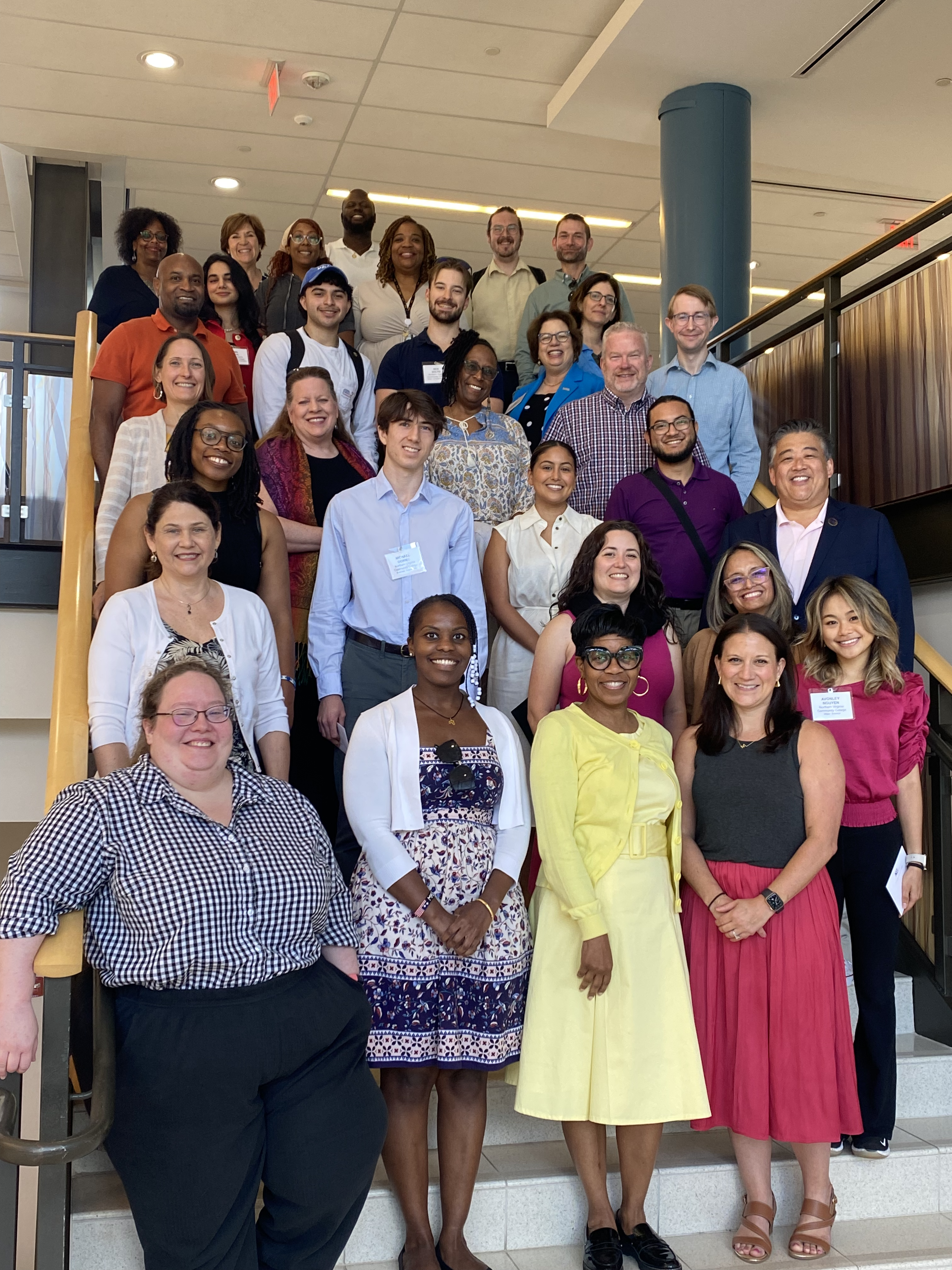LO Campus Hosts ACCT Staff
On Tuesday, June 11, NOVA Loudoun welcomed staff members from the Association of Community College Trustees (ACCT) for a campus visit. Attendees heard from current students and recent alumni about their choice to attend NOVA, the obstacles they faced in pursuing higher education and the resources they used to navigate their college experience. The event was spearheaded by former NOVA Board Chair and lifetime ACCT member Rosalena “Rosie” O’Neil, who is currently serving on the NOVA Foundation Board. Students reflected on their experiences with compassionate professors; helpful staff who helped them explore resources, scholarships and other opportunities; and mentors who influenced their pursuit of a particular career.
The visit began with a presentation by Loudoun Provost Julie Leidig, who celebrated the unique strengths of community colleges in general and NOVA specifically. The student panel brought together student ambassadors, student government officers, CCAMPIS program participants, individuals pursuing multiple degrees, and students in both transfer degree programs and certification programs, as well as recent alumni of the College.
After the panel, students participated in three lightning rounds of “speed dating,” which featured informal conversations among small groups. The event concluded with a campus tour that highlighted Loudoun’s music recording studio, piano lab, horticulture greenhouse and student services center.
The guests, including ACCT President Jee Hang Lee, enjoyed their time on campus and were impressed with the passion, resourcefulness and talent of the student panelists.
About the Association of Community College Trustees
ACCT is a nonprofit educational organization of governing boards, representing more than 6,500 elected and appointed trustees who serve on over 500 governing boards of community, technical and junior colleges in the United States and beyond.
These community professionals, business officials, public policy leaders and leading citizens offer their time and talent to serve on the governing boards of this century’s most innovative higher education institutions — community, junior and technical colleges — and make decisions that affect over 1,000 colleges and over 10 million students annually.

Submitted by:
Sheila Escobedo Yusufi, LO-CCR, SEscobedo@nvcc.edu
